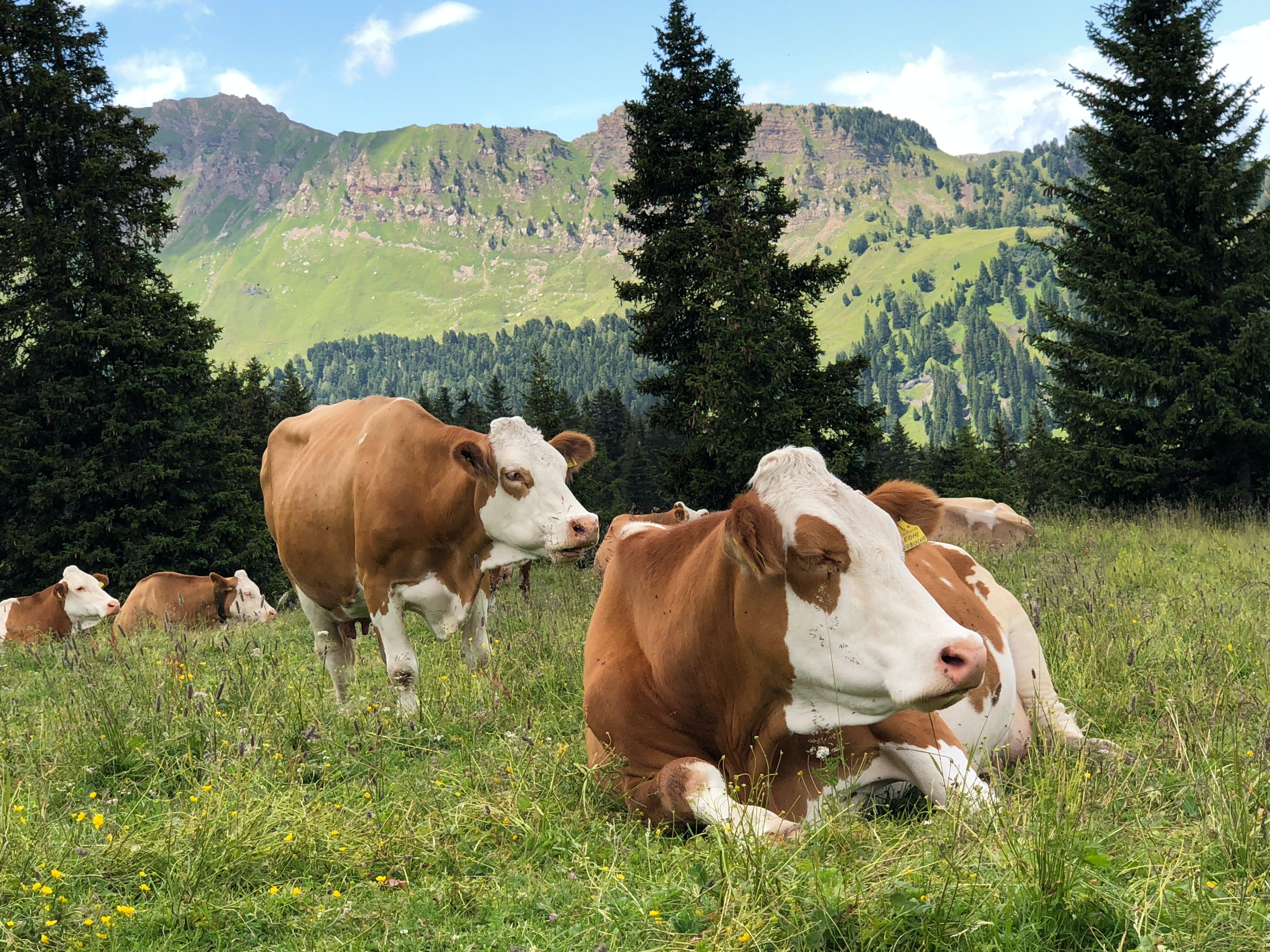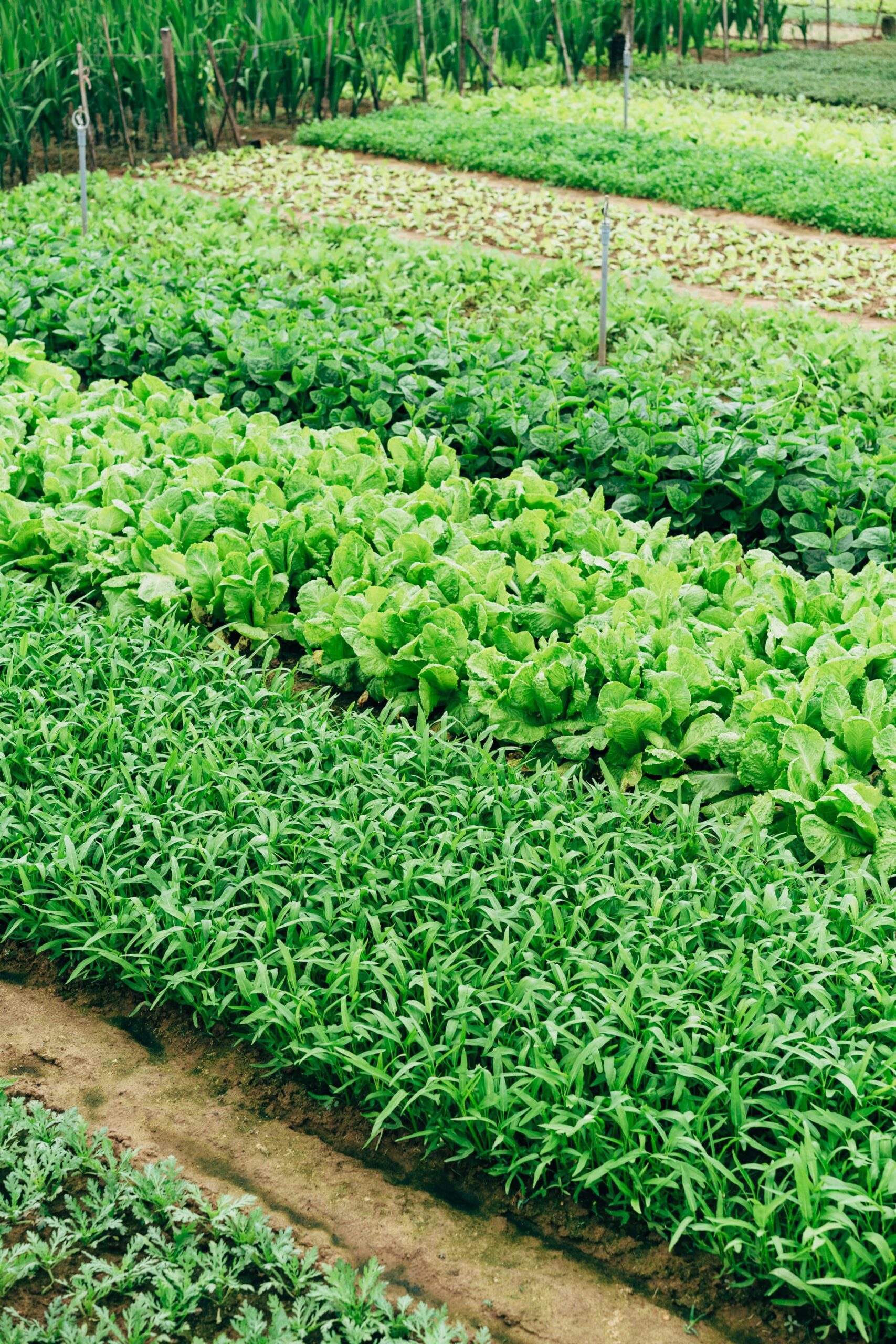This Farmer-Owned Co-op is Leading the Herd in Sustainable Farming
A shoeless, hippie farmer named George Siemon put up posters around the Coulee region of rural Wisconsin in 1988. The posters were a call to action for local farmers who’d been pushed aside by the agriculture industry, because at the time, it was “get big, or get out.” Siemon believed there was a better way to farm–a sustainable way that protected the land, animals, and health of the people. It turned out Siemon wasn’t alone in this idea, and, in a packed county courthouse, the farmer-owned co-op that would become Organic Valley was born.
Calling themselves the Coulee Region Organic Produce Pool (C.R.O.P.P), they set out with a mission to change the way people think about food, and C.R.O.P.P. set high organic standards for their produce. Later on these standards would serve as the framework for the modern USDA’s organic certification. Not long after that fateful courthouse meeting, word spread about their high quality standards, and other farmers wanted in on the organic action – farmers across the country. Over 30 years later, Organic Valley is the top producer of organic dairy, and the company is still farmer-owned, dedicated to protecting the earth, and focused on selling some of the highest quality organic produce, dairy, and eggs in the country.

It’s no secret that farms are responsible for a large portion of the greenhouse gas emissions released into the atmosphere, but Organic Valley is working to change that. Three Organic Valley Cooperative members in California are setting high greenhouse gas emissions reductions goals in a program called Climate-Smart Farming (CSF). The three goals of CSF are to sustainably increase productivity and income, adapt and build resilience to climate change, and reduce greenhouse gas emissions, where possible. Organic Valley is hoping to achieve carbon neutrality and even a carbon positive position, meaning Organic Valley farms would help eliminate greenhouse gas emissions from the atmosphere instead of producing them.
With assistance from Annie’s Homegrown, Organic Valley has secured over $2.2 million to work on CSF, and they are working to make the project scalable for their 2,000 organic farms. Organic Valley even says they will share their Climate-Smart Farming research with non-members and competitors. They hope to achieve neutrality with a combination of carbon farming and efficient, renewable energy.
What’s carbon farming? It’s a focus on soil health, biodiversity, as well as soil and water consumption. These are all guidelines that are a part of National Organic Standards that every organic farmer should follow. Carbon farming uses methods like silvopasture, which is the practice of planting trees in pastures for shade, plant diversity, and livestock shelter. Carbon farms rotate their crops because planting the same thing in one location wears down the soil over time, and they rotate their grazing so that pastures aren’t overgrazed by livestock. They plant windbreaks, hedgerows, and riparian buffers to help protect animals and plants and conserve resources like water and soil. Carbon farming is the smart, earth-friendly, and responsible way to farm.
Carbon farming and climate-smart farming aren’t new for Organic Valley. Since 2008 their sustainability team has worked with farmers to implement over 150 energy saving projects that have the potential to save $6 million. As of 2020, Organic Valley is 100% powered by renewable energy from their Organic Valley Community Solar Partnership (OVCSP). How did the co-op manage that? By cooperating! The installation of the 12-acre solar farm in Cashton, Wisconsin took two years and a lot of coordination from the City of Madison, Dr. Bronner’s, Clif Bar & Company, Fresh Energy, and more. OVCSP also placed smaller solar installations in areas across Wisconsin, and they partnered with Cashton Greens Wind Farm to ensure they’re 100% renewably powered. The OVCSP also brings cheap, renewable energy to communities across Wisconsin with over 23,000 rural homes benefitting from easy access to decades of green energy.
Organic Valley does more than just treat their plants well. Their farmers operate with extremely high standards for the treatment of their animals because respect and care result in a higher quality product. Organic Valley’s livestock receive healthy amounts of free-range grazing time as they say, “It’s how they’re meant to live, so that’s how we let them live.” Chickens are given the freedom to roam a large range or shelter inside, and cattle are kept in smaller herds with an average of just 75 cows. When Organic Valley farmers put pedometers on their cattle, they discovered that the animals take more steps than most people! Organic Valley cows are fed a grass-only diet, as nature intended, and they produce milk with 147% more omega-3, which highlights some of the other health benefits of eating organic. Organic foods are higher in antioxidants and conjugated linoleic acids, and they also have lower concentrations of heavy metals like cadmium. Since organic farmers never use pesticides, they avoid using chemicals that can be harmful to animals, humans, and even the Earth. Organic Valley doesn’t use artificial hormones, letting animals grow at their own pace, and they keep their animals healthy with holistic methods to avoid the need for worrisome antibiotics. Grazing on only organic grass also helps create a health pasture ecosystem that reduces greenhouse gas emissions over time.Does it seem too good to be true? Go see for yourself! Organic Valley invites customers to visit their family farmers in a new initiative The New York Times is calling “Table to Farm.” Organic Valley’s structure allows customers to purchase vegetables and dairy that were farmed in their local region. Not only do you get to visit the farms that provide your organic food, but you can also rest easy knowing transportation costs were kept to a minimum. As the Covid-19 pandemic struck households across America and food banks grew empty, Organic Valley donated over 140,000 pounds of food to the communities that needed it most. As a family of farmers, Organic Valley cares about cooperating with the planet and giving back to the people they serve. And remember George Siemon, the hippie farmer? He is still running things today.





